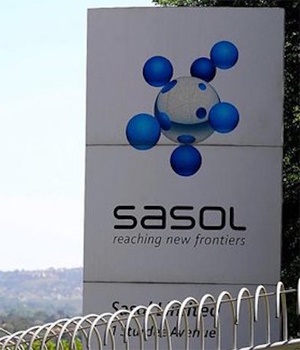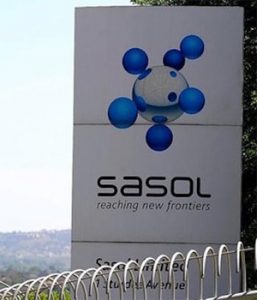
- By: News
- 0 comment
- Shareholders who hold more than 96% of Sasol shares voted in favour of its climate change report.
- Shareholder activists said the result reflected the failure of investors to interrogate or understand the significant gaps in Sasol’s plans.
- A credible strategy to reduce its reliance on coal is central to the company’s investment case.
Sasol shareholders have voted overwhelmingly in favour of the company’s climate change report which sets out a pathway to realise its ambition to reach net zero by 2050.
The vote followed after hours of tough questions were levelled at Sasol’s board and management at the group’s annual general meeting (AGM) on Friday afternoon.
The questions ranged from the financial to the operational and were heavily focused on the future sustainability of the company as outlined in its 2021 climate change report.
Sasol’s Secunda plant – where it produces fuel from coal – is the largest single-point source of greenhouse gas emissions in the world and a credible strategy to reduce its reliance on coal is considered central to the company’s investment case.
In a vote that was non-binding and advisory in nature, shareholders holding 96.63% of Sasol shares voted in favour of the plan, despite a number of tough questions being posed to Sasol over the rigour of its plan.
Just Share, a shareholder activist organisation, voted against the report.
Criticism
Robyn Hugo, the organisation’s director of climate change engagement, said the vote in favour of Sasol’s climate plan is a disappointing reflection of the failure of investors to interrogate or understand the significant gaps in Sasol’s plans.
“It constitutes nothing more than an endorsement of incremental progress – and let us be clear: we are talking about progress in disclosure, not progress in emission reductions,” she said, noting that Sasol’s emissions have increased in both the years since it set its first emission reduction target in 2019. The company has still not set a measurable emission reduction target until 2026.
“Shareholders [who] vote in favour of this plan send a message to Sasol that it has done enough, despite the glaring absence of detail about how the plan will be executed, how feasible it really is, what the cost implications are, and how it will impact on South Africa’s overall ability to finance and achieve a just transition to a low-carbon economy. None of these issues was adequately addressed by answers given in the AGM,” she said.
In response to some of the climate-related questions at the AGM, Sasol CEO Fleetwood Grobler said plans to bring on large amounts of renewable energy at its operations would occur in tranches, the first of which would only come online in the next few years as the procurement and implementation of these projects will take time.
Sasol expects 200 MW of renewable energy will be brought on board before 2025, at which point some of its emission reduction ambitions will be realised. Further, he said, Sasol had set clear, tangible targets for 2030 that comprise a 25% reduction in its coal usage.
Grilled
The group said it had identified a number of “shovel-ready” projects which could provide it with green power. Grobler said grid capacity constraints in the Northern Cape would not thwart its plans as private power projects would be located elsewhere.
Sasol was further grilled over its plan to introduce more gas into its operations. Although it burns cleaner than coal, gas remains a fossil fuel which detractors say will similarly contribute to a climate disaster.
Grobler said the introduction of more gas into Sasol processes would replace coal and immediately reduce the greenhouse gas footprint of production by between 50% and 60%.
The end state for Sasol is to be free of fossil fuels, he said.
Green hydrogen
This depends on green hydrogen – hydrogen produced from renewable energy – becoming economically viable. One shareholder questioned whether this it would truly ever become a reality.
Green hydrogen, Grobler said, “is central to hard-to-abate industries and green hydrogen is going to happen”. Having attended the recent UN Climate Change Conference (COP26) in Glasgow, he said there appeared to be “no doubt in anyone’s mind green hydrogen will play a role to decarbonise the globe”.
The Sasol CEO insisted that net zero for Sasol was non-negotiable. “We know we have to move fast to transition to a new Sasol, but to do so in a responsible manner,” he said. “We must preserve shareholder value from our current business, while we decarbonise and transition to a lower carbon feedstocks suite.”
All of the resolutions tabled at the AGM were passed. The resolutions pertaining to executive and non-executive remuneration received the highest number of unfavourable votes, but were still passed with a majority of between 86% and 89%.
SOURCE:
https://www.news24.com/fin24/companies/industrial/despite-tough-from-shareholders-sasol-gets-overwhelming-support-for-climate-report-20211119



